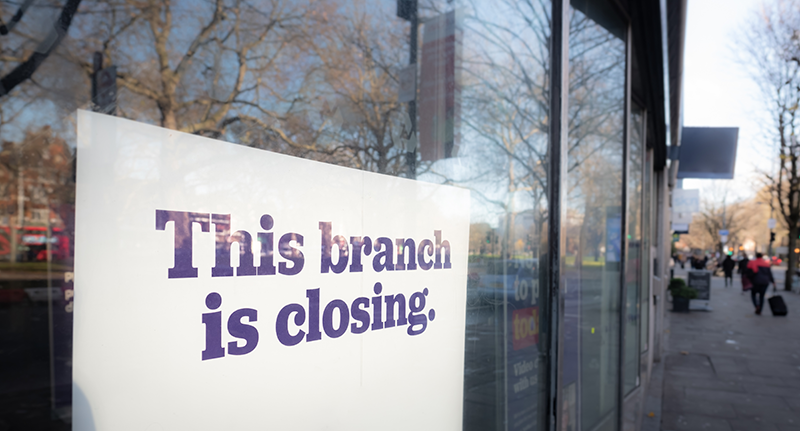The closure of High Street Bank branches has focussed on the inconvenience to private customers However, the impact on the UK SME community is dire and seems to have gone unnoticed.
A group of Dorset businesses has written to Government as follows. An acknowledgement has been received.
If you have a comment please let us know.
UK SMEs have historically shown survival skills that are driven in part by an innate ability to innovate, but mainly due to sheer hard work.
They are the foundation upon which the whole economy rests and are key to the global business of UK PLC. However, Covid 19, the events in Ukraine and current inflation have combined to produce a perfect storm for the SME community. Every sector is impacted.
The Government has given financial support, but this is not enough. SMEs need advice, guidance and outside experience, but this is currently in short supply.
Various Government agencies have come and gone. Businesslink, Regional Development Agencies and now Local Enterprise Partnerships have all attempted to support SMEs. Good intentions, but without proven profitable outcomes.
Michael Heseltine’s 2002 paper “No Stone Unturned In Pursuit of Growth” was realistic in its thinking, but never really gained overall traction.
In Dorset the Growth Hub is losing support. Hundreds of small businesses will find themselves without help. A picture common across the UK.
A coordinated national SME support structure has never really existed (for long) in the UK. A situation made worse by the current economic climate.
The major High Street Banks once brought together finance, experience and advice, but the rush for change has seen these vital facilitators of past UK growth diminished, if not extinguished.
When there were banks on every High Street business had a local point of contact. Decisions were quick and based upon a personal relationship. Local branches could make substantial advances on their own responsibility. In comparison current systems are slow and impersonal.
We cannot rebuild the High Street banks ability to lend nationally on a local basis. The thousands of skilled and experienced staff who once operated the banking system are long gone. Strategic banking mistakes cannot be reversed like relaying the railway tracks destroyed by Beeching.
These issues (and others) slow UK economic growth.
The critical Issue of SME support and finance could be addressed by allowing businesses to run German Sparkassen style banks. Operated by the local commercial community these banks would revive the strengths of past banking functions. Financial interaction would spark new ideas and could be reinforced by networks such as the British Business Network.
The Private Sector produces value that powers public services. UKPLC must thus sell into a challenging global market to operate profitably. “Export of die” from the sixties comes to mind. Why not focus on how every enterprise contributes to UK exports. This might revive the “economically inactive”.
A return to what are regarded by some as “old fashioned” lending processes would help. We seem to have a ‘fire and forget’ approach to lending/ grants etc. Control of funds advanced is a traditional canon of lending that is proven to reduce losses, something the Local Government Sector seems to have forgotten or never learned. And then there’s Thames Water.
Perhaps we should relearn the words “financial discipline” and return to sound money.
Hopefully, someone in Government has a plan based upon what is really happening on the front line.
National strategies should be formed around what is happening on the ground. At one time the banks supplied
local information to The Treasury via branches of the Bank of England. Data was realistic, dynamic and based on fact. Economic ‘errors’ by the Bank of England and the OBR suggests they are driven by AI and algorithms rather than by common sense?
Forgotten success in the past can often address the challenges we face today.
I hope someone is listening.




Comments (0)